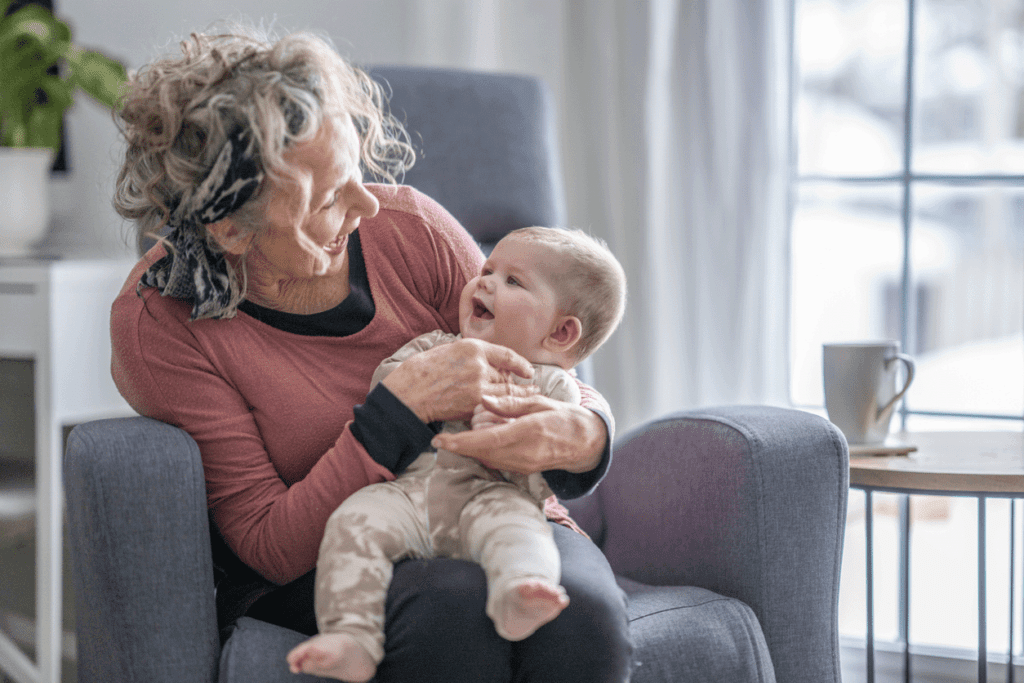
The oldest and youngest among us are at greatest risk of complications from RSV infection.
Cooler temperatures, colorful foliage, and divisive flavors of pumpkin spice: so much to anticipate as we head into fall! One thing we don’t look forward to is the advent of respiratory illnesses that accompany the cooling temperatures. A number of respiratory viruses become more prevalent in the cooler months including Influenza, COVID-19, and the focus of today’s post: Respiratory Syncytial Virus (RSV).
In 2022, RSV numbers peaked in the weeks leading up to Thanksgiving. This year, surveillance data shows infections are already rising. Fortunately, this year is also the first time many of us will be able to get a vaccine to lower the risk of getting sick with RSV. We covered this new development in a blog post earlier this year. The Centers for Disease Control and Prevention (CDC) recommends that certain high-risk groups should consider getting the vaccine. So who are these groups? And should you consider getting vaccinated?
Populations at greatest risk
The populations at greatest risk of complications from RSV infection are the youngest and the oldest among us. Infants are at high risk, particularly those born prematurely or suffering from diseases of the heart, lung, or immune system. While most infants will recover with supportive care, some will need intensive hospitalization and a few may die from the infection. The CDC estimated RSV to cause 58,000 to 80,000 hospital admissions and between 100-300 deaths each year among infants.
Infants themselves cannot get the vaccine. However, they can get a dose of a newly released monoclonal antibody to lower that risk. For this reason, one of the recommended groups for the new RSV vaccine is pregnant women between weeks 32 and 36 of pregnancy. This allows them to form antibodies against RSV that can cross the placenta and protect the baby during those vital initial months of life when their immune system is still developing. While not all infants are at equally high risk as stated earlier, all pregnant women should consider getting vaccinated in case of preterm birth or unanticipated illnesses in the newborn that might increase their risk.
At the other end of the age spectrum, the elderly are also more likely to get complications from an RSV infection that lead to hospitalization and increased mortality. Compared to infected infants, mortality rates are much higher in the elderly. In adults aged over 65 years, the CDC estimates that RSV causes between 60,000 to 160,000 hospitalizations and 6000-10,000 deaths each year. Accordingly, they recommend that all adults over the age of 60 consider getting the RSV vaccine in a discussion with their providers. In terms of lives saved, vaccinating this population will be key to reducing deaths from RSV.
Now’s the time to act
To conclude, if you’re over the age of 60 or pregnant, you likely qualify for the new RSV vaccine. Go talk to your provider today to see if that is the right step for protecting your health this winter!
Disclaimer: This blog content and linked materials are not intended as individual medical advice, diagnosis or treatment, and should not be considered as such. Any readers with medical concerns should contact a licensed healthcare provider. This blog is provided for informational purposes only.
